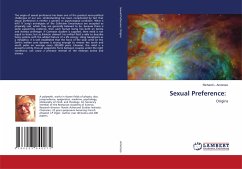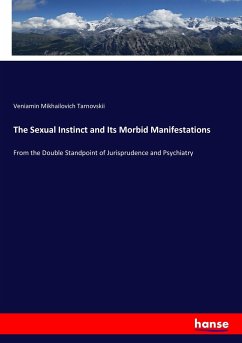
Sexual Preference:
Origins
Versandkostenfrei!
Versandfertig in 6-10 Tagen
55,99 €
inkl. MwSt.

PAYBACK Punkte
28 °P sammeln!
The origin of sexual preference has been one of the greatest socio-political challenges of our era. Understanding has been complicated by fact that sexual preference is neither a genetic or psychological condition. What is left? If Jung's archetypes of the Collective Unconscious are accepted as physically real, which they are generally believed to be, because there is some supporting evidence, then each human being has both an Anima and Animus archetype. If Cartesian dualism is supplied, then mind is not equal to brain; but as Einstein claimed: his unified field is able to describe living syst...
The origin of sexual preference has been one of the greatest socio-political challenges of our era. Understanding has been complicated by fact that sexual preference is neither a genetic or psychological condition. What is left? If Jung's archetypes of the Collective Unconscious are accepted as physically real, which they are generally believed to be, because there is some supporting evidence, then each human being has both an Anima and Animus archetype. If Cartesian dualism is supplied, then mind is not equal to brain; but as Einstein claimed: his unified field is able to describe living systems with the added feature of a life energy. Using Geophysics as a metaphor, it is well established that the force of the solar wind on the Earth's molten core dynamo is strong enough to reverse the north and south poles on average every 200,000 years. Likewise, the mind is a powerful entity, thus an epigenetic force between couples under the right conditions, can cause a prenatal reversal of the embryos anima and animus.












